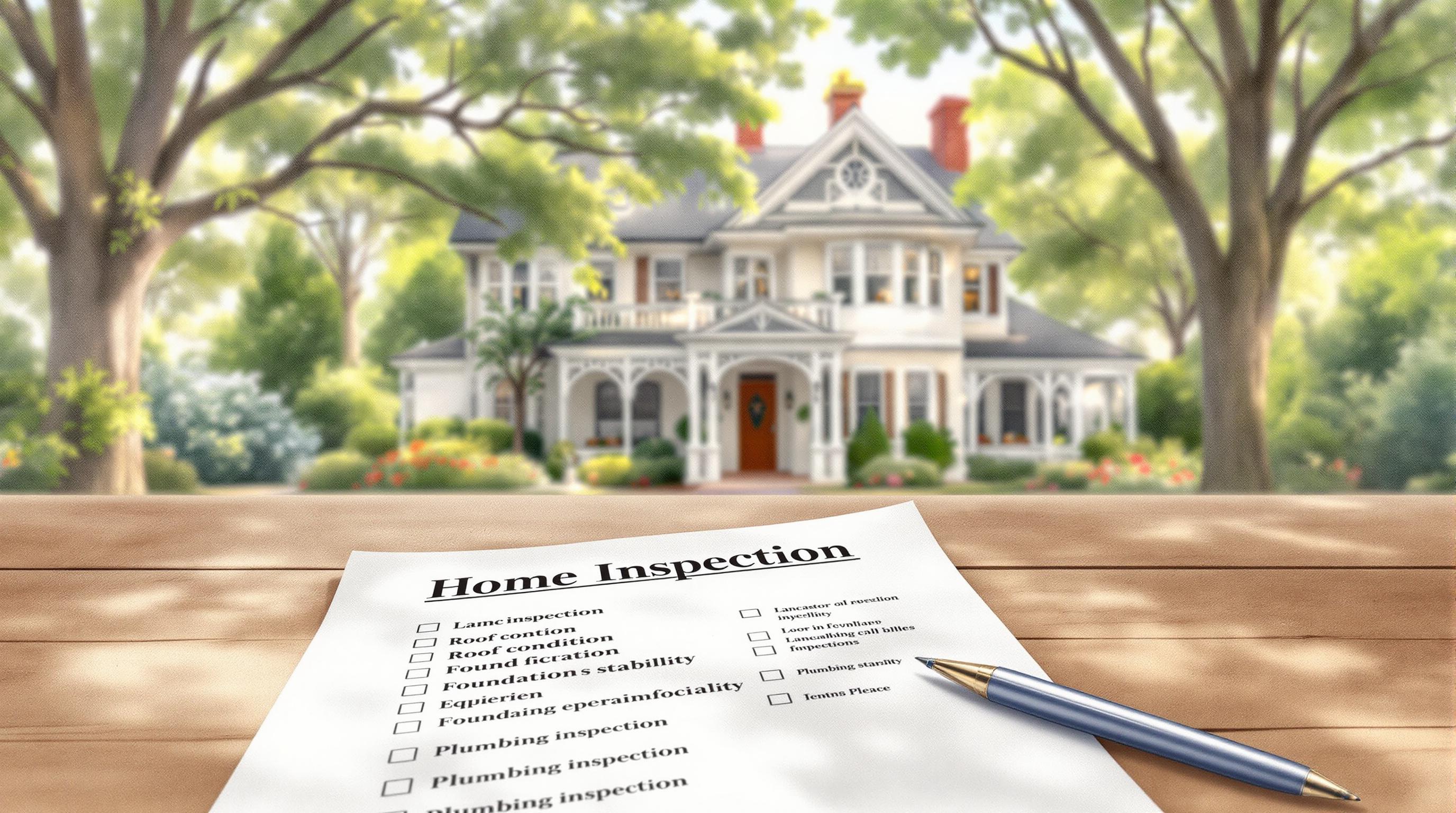Selling your home in 2025? Here’s what you need to know about taxes in Central PA:
- Federal Capital Gains Exemptions: Exclude up to $250,000 (single) or $500,000 (married) if you meet the 2-out-of-5-year rule.
- Pennsylvania Income Tax: Flat 3.07% on profits after federal exemptions.
- Realty Transfer Taxes: Total rates range from 2-3%, split between state (1%) and local municipalities (1-2%).
- Tax Deductions: Major home improvements (e.g., new roof, kitchen remodel) can reduce taxable gains, but routine maintenance and minor repairs don’t qualify.
Key Tip: Accurate records of ownership, improvements, and sale-related expenses are crucial for minimizing tax liabilities.
For inherited or mixed-use properties, additional rules apply. Professional guidance can simplify complex transactions and ensure compliance.
How to Avoid Capital Gains Tax When Selling Real Estate - 121 Exclusion Explained
Federal Tax Rules for Home Sales
If you're a homeowner in Central PA planning to sell in 2025, understanding federal tax rules is essential. These rules, combined with Pennsylvania's tax structure (discussed later), determine how much you'll owe.
Home Sale Tax Exemptions
You may qualify for capital gains exclusions under the 2-out-of-5-year rule if you meet these criteria:
| Requirement | Details |
|---|---|
| Ownership Period | Owned the home for at least 2 years |
| Occupancy | Used the home as your primary residence for at least 2 of the last 5 years |
| Frequency Limit | Can only claim this exclusion once every 2 years[2] |
To prove eligibility, keep documents like your deed, purchase records, mortgage statements, utility bills, ID, and relevant tax returns.
How to Report Home Sale Profits
If your profits exceed the exemption limits, you'll need to report them correctly. For 2025, the long-term capital gains tax rates are:
| Tax Rate |
|---|
| 0% |
| 15% |
| 20% |
Here’s how to report taxable gains:
- Use Form 8949 to record the sale.
- Transfer the information to Schedule D.
- Include it with your 1040/1040-SR tax return[1][2].
For properties used for business, you'll also need to account for depreciation recapture (taxed at a maximum rate of 25%) on any deductions you previously claimed[1].
Pennsylvania Tax Rules
Pennsylvania's tax system takes a different approach compared to federal policies, especially when it comes to state income taxes and local transfer taxes. While federal exemptions lower your taxable base, Pennsylvania applies its flat 3.07% tax rate to what remains after federal exclusions.
PA State Income Tax on Home Sales
In Pennsylvania, capital gains are taxed as regular income at a flat rate of 3.07%. The state uses federal exemptions but doesn't provide any additional relief at the state level. To comply with Pennsylvania's reporting requirements, you'll need to file:
- Schedule D for reporting capital gains
- PA Schedule 19 to calculate the taxable portion of the gain
These forms work alongside the federal forms you've already completed.
Local Property Transfer Taxes
The Realty Transfer Tax (RTT) in Pennsylvania is split into two parts:
| Tax Component | Rate | Details |
|---|---|---|
| State RTT | 1% | Applies to all property sales |
| Local RTT | 1-2% | Varies by municipality |
| Total RTT | 2-3% | Typically shared by buyer and seller |
For example, in Central PA, Harrisburg imposes an additional 1% city tax, while most counties charge a total of 2% (1% state + 1% local).
Some transactions are exempt from this tax, including:
- Transfers involving government entities
- Certain corporate or partnership transfers
- Property passed through inheritance
To determine your exact transfer tax rate, check with your county office or consult a real estate expert. The specific rates depend on the municipality where your property is located.
Tax Deductions for Home Sellers
If you're selling your home in Central PA, knowing which expenses qualify as tax deductions can help reduce your tax bill. The IRS allows certain deductions that can lower the taxable gain from your sale. These deductions work alongside federal exemptions and Pennsylvania tax rules to improve your financial results.
Tax-Deductible Home Improvements
Big home improvements that increase your property's value or extend its lifespan can be added to your home's cost basis. This helps reduce potential capital gains. Here are some categories of improvements that qualify for deductions in 2025:
| Improvement Category | Examples |
|---|---|
| Structural Additions | Room additions, basement finishing |
| Energy Systems | Solar panels, new HVAC |
| Major Replacements | Roof, windows, siding |
| Kitchen & Bath | Complete remodels |
| Accessibility Features | Wheelchair ramps, wider doorways |
To avoid issues, complete renovations at least three months before listing your home. Keep thorough records by:
- Logging project dates, costs, and contractor details
- Digitizing receipts and permits
- Taking photos of completed improvements
- Keeping updated tax assessments
For more details on how these affect your taxes, check out "How to Report Home Sale Profits."
Non-Deductible Home Expenses
Not every home expense qualifies for a tax deduction. Here are some common expenses that don't make the cut:
| Expense Type | Examples | Why Not Deductible |
|---|---|---|
| Routine Maintenance | Painting, lawn care | Considered regular upkeep |
| Minor Repairs | Fixing leaks, replacing hardware | Maintains rather than improves |
| Insurance Costs | Homeowners insurance premiums | Operating expense |
| Utility Bills | Electric, water, gas | Personal living expense |
| Property Taxes | Annual tax payments | Deductible separately |
Keep in mind, costs like real estate commissions and legal fees can be subtracted from your sale price rather than being added to your cost basis [1][2].
sbb-itb-7fa5722
Special Tax Situations
Selling property in Central PA can come with unique tax considerations that go beyond standard deductions and exemptions. These situations often require extra documentation and careful planning.
Taxes on Inherited Homes
Inherited properties in Central PA benefit from what's known as a "stepped-up basis." This means the property's cost basis is adjusted to its fair market value at the time of inheritance, which can significantly lower capital gains taxes if the property is sold shortly after being inherited[1].
Example: If a home was originally purchased for $150,000 but is inherited when its market value is $400,000, the new cost basis becomes $400,000. Selling the home for $425,000 would result in a taxable gain of only $25,000.
Here are some key points to keep in mind when dealing with inherited properties:
| Inheritance Aspect | Tax Impact | Action Required |
|---|---|---|
| Direct Descendants | 4.5% PA inheritance tax, per state rules[6] | Secure a professional appraisal and inheritance documents |
| Property Valuation | Affects the stepped-up basis calculation | Keep an eye on local market trends |
| Post-Inheritance Upgrades | Can increase the cost basis | Maintain detailed records of all improvements |
Good documentation is essential here and ties into broader record-keeping practices like those mentioned in Tax-Deductible Home Improvements.
Mixed-Use Property Sales
If your property has been used for both personal and business purposes, the tax treatment becomes more complex. The personal and business portions of the property are taxed differently, requiring careful calculations.
Important factors to consider:
| Business Use Factor | Tax Consideration | 2025 Impact |
|---|---|---|
| Depreciation Recapture | Tax owed on previously claimed depreciation | Ensure accurate depreciation records |
| Capital Gains Split | Different rates for personal vs. business portions | Separate and calculate each portion |
| Business Percentage | Affects eligibility for exclusions | Determine the percentage of business use |
| Property Improvements | Impacts basis calculations | Keep thorough documentation of upgrades |
These mixed-use scenarios demand precise records and an understanding of how deductions and exclusions apply to each portion of the property.
Services from Central PA Realty

Central PA Realty offers services designed to simplify tax compliance for property sellers, focusing on key federal and state tax considerations.
Here’s a quick look at their tax-related services:
| Service Type | Tax Benefits |
|---|---|
| Immediate Cash Offers | Fixed pricing helps streamline capital gains calculations. |
| Traditional Sales | Guidance on property improvements to maximize potential tax deductions. |
| Complex Property Sales | Expertise in handling business/residential splits to minimize tax liabilities. |
Their immediate cash offer service is especially useful for sellers who need precise tax planning. With this service, you’ll receive a detailed breakdown of costs, including:
- The exact sale price for calculating capital gains.
- A clear summary of transfer tax obligations.
- A transparent view of closing costs.
- A net proceeds calculation tailored for tax planning.
For sellers dealing with inherited properties or mixed-use buildings, Central PA Realty works with local tax professionals skilled in handling complex transactions. This ensures sellers get advice and solutions tailored to their unique situations [2][5].
Their local knowledge is also key when calculating transfer taxes across different counties in Central PA.
Documentation Support
Central PA Realty helps streamline tax compliance by providing:
- Detailed closing statements for tax reporting purposes.
- Assistance with post-sale documentation to ease tax filing.
This organized approach ensures sellers have the records they need for accurate tax planning.
Conclusion
Navigating 2025's tax strategies means paying close attention to both federal exemptions and Pennsylvania's specific rules. By tackling key tasks - like verifying eligibility for exclusions, documenting property improvements, and calculating local transfer taxes - sellers can better handle their tax responsibilities.
Key areas to focus on include:
- Checking eligibility for exclusion thresholds
- Keeping detailed records of property improvements
- Accurately calculating local transfer taxes
With tax consultations increasing by 15% since 2023 [7], seeking professional advice is becoming more critical, especially for complex deals like mixed-use properties. These transactions often demand extra care with documentation and compliance [4].
To stay on track:
- Keep up with any regulatory updates
- Consult tax experts early to align plans with current rules and financial objectives
- Partner with experienced real estate professionals who understand both market trends and tax considerations
FAQs
How do I avoid capital gains on the sale of my primary residence?
If you're selling your primary residence, you may qualify for a tax break. Single filers can exclude up to $250,000 of gains, while married couples filing jointly can exclude up to $500,000 from their taxable income[1][2]. For investment properties, a 1031 exchange might help you defer taxes, but you'll need to maintain accurate depreciation records, as highlighted in the Mixed-Use Property Sales section.
For more details on documentation, refer to the Home Sale Tax Exemptions section above.
What will the estate tax exemption be in 2025?
The federal estate tax exemption is set to reach $13,990,000[8]. However, for most sellers in Central PA, the focus is usually on Pennsylvania's 4.5% inheritance tax for direct descendants, which is often more relevant than federal estate taxes[6].
What is the capital gains tax on selling a house in Pennsylvania?
Pennsylvania has a flat income tax rate of 3.07% applied to profits from home sales after accounting for federal exemptions[3][5]. Here's a quick overview:
| Tax Type | Rate |
|---|---|
| PA Income Tax | 3.07% |
This tax structure aligns with Pennsylvania's straightforward flat tax system, as described in the PA State Income Tax on Home Sales section.



